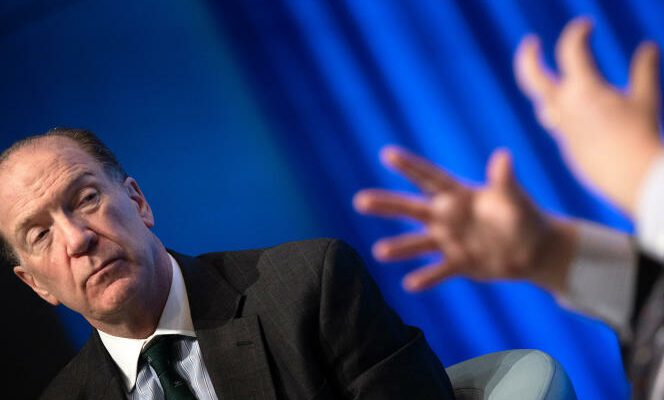The World Bank will soon change leadership. Its president, David Malpass, announced on Wednesday February 15 that he would resign by June 30, nearly a year before the end of his five-year term, without giving a specific reason. Placed in this position by former President of the United States Donald Trump in April 2019, the 66-year-old American was criticized for his lack of voluntarism in the fight against climate change.
He was also under pressure from shareholder countries to reform the largest multilateral development bank in the world. Barely six days before the announcement of this resignation, Thursday, February 9, the American Secretary of the Treasury, Janet Yellen, had called on the institution based in Washington to release ” quickly “ resources to help developing countries cope with crises, including health and climate.
As financing needs related to adaptation to global warming increase and many wealthy countries have emerged from debt from the Covid-19 crisis, several World Bank shareholders want the institution to strengthen its financing capacities by relying on the private sector. A report, commissioned by the G20 countries and published in October 2022, had put forward several avenues for reform.
“No clear vision” of the development-climate link
One of them was to increase the amounts of “required capital” by the shareholder countries, i.e. capital available when needed but not mobilized, which enables the Bank to raise more funds on the markets without the risk of seeing its rating downgraded with the rating agencies. Another recommendation: the sale of certain loans to the private sector, in order to lighten its balance sheet and regain leeway in its financing.
“But the World Bank was reluctant to engage in some of these reforms,” says Clemence Landers, a researcher at the Center for Global Development, a Washington-based think tank. David Malpass was especially hard to convince of the sincerity of his fight against climate change.
Asked three times about the role of fossil fuels in global warming during a round table organized by the New York Times in October 2022, Donald Trump’s former Undersecretary of the Treasury for International Affairs refused to take a position, replying that he was not himself “not a scientist”.
Although he later denied being a “climatosceptic” and highlighted the 31.7 billion dollars (29.6 billion euros) of climate financing in 2022, or 36% of the loans of the institution, the NGOs accuse it of continuing to finance projects using gas natural. “He failed to formulate a clear vision of the World Bank’s role in development and the fight against climate change, and above all to articulate the two subjects without opposing them”, believes Clemence Landers.
You have 38.38% of this article left to read. The following is for subscribers only.
